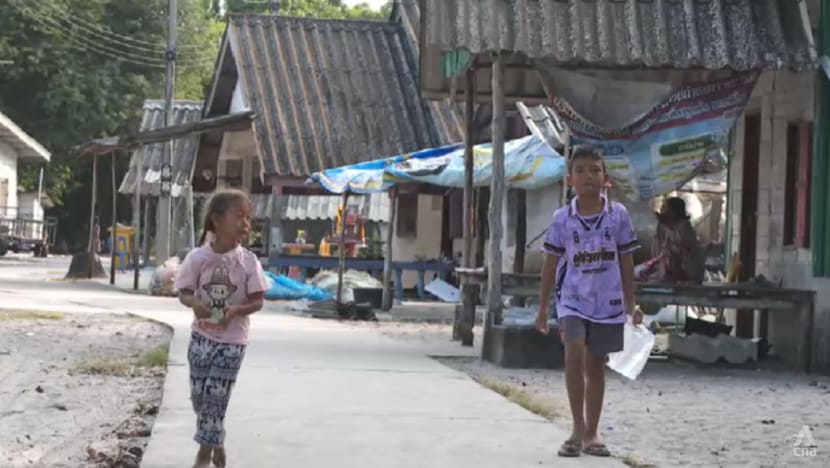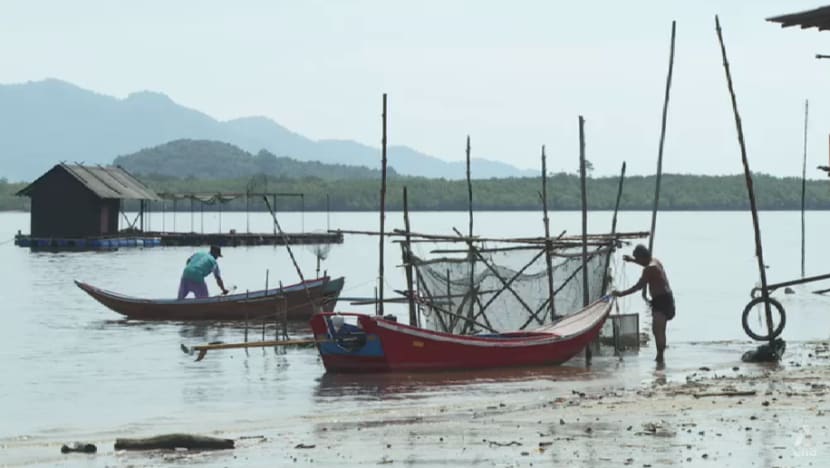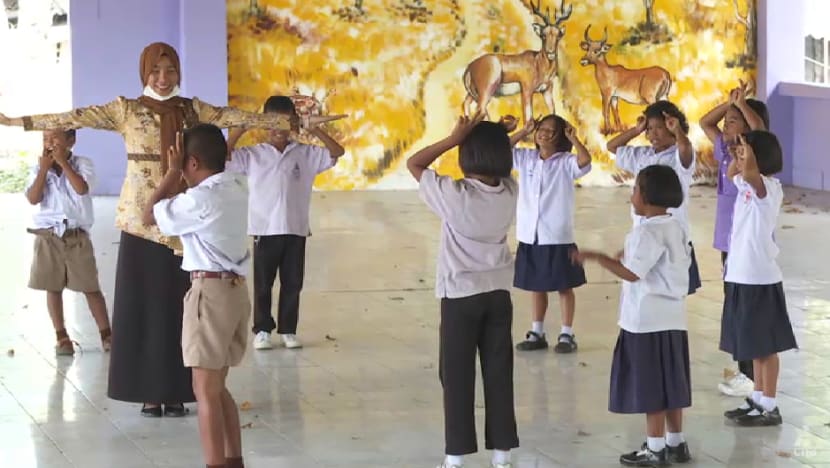Advertisement
Asia
Thailand’s sea nomads are struggling to preserve their vanishing culture and identity.

Moken children walk in a village. Many children are of mixed Thai-Moken heritage now as more marry outside the community.
New: You can now listen to articles. 
This audio is generated by an AI tool.

28 Dec 2024 08:40AM (Updated: 28 Dec 2024 08:56AM)
PHANG-NGA, Thailand: When the Indian Ocean tsunami hit the south-western coast of Thailand in 2004, it claimed over 5,000 lives.
But the local indigenous Moken people miraculously survived with almost no casualties among them.
They had seen the waters recede abnormally from shore, and because of knowledge of the sea passed down by their ancestors, they knew a tsunami was coming.
Many made their way inland towards higher ground, avoiding one of the most devastating natural disasters in recent history.
Most Thais did not know about these seafaring nomads but after 2004, a lot of public attention was given to them, especially about their way of life and their understanding of the ocean.
Thailand’s Princess Maha Chakri Sirindhorn even bestowed many members of the community with the surname “Klathale”, which means “the brave of the sea”.
THE MOKEN PEOPLE
The indigenous Moken are among Thailand’s nomadic seafaring tribes, collectively referred to as Chao Lay, or sea folks. They are scattered across islands on the coast of Thailand and Myanmar.
While they escaped the tsunami unscathed, their homes did not. Entire villages were swept away in the disaster and many were left homeless.
After the tragedy, charities and authorities descended on the Moken and other Chao Lay, helping to build houses and introducing them to a more land-based and less nomadic lifestyle.

Traditionally, they lived on boats with fishing as a main source of food and income, only staying on land during the monsoon season.
In recent decades, there has been a gradual shift in the Moken way of life, as more turn to permanent housing on land and work in bigger cities.
PEOPLE OF THE SEA
Fang Klathale, a member of the Moken community, has called the ocean her home for most of her life.
But now, at 96 years old, Fang is staying in mainland Thailand in order to be closer to medical services.
While her age and healthcare needs have compelled her to move, she is worried that younger members – many of whom have also left their homes to work in cities – are losing touch with their culture.
“The kids these days don’t speak the Moken language. They don’t understand it anymore. They’re all speaking Thai now,” she told CNA.
Fang’s traditional home is on Koh Phra Thong, one of the hundreds of islands in the Andaman Sea, about an hour’s boat ride away from mainland Thailand.
Only about 800 people live on the island. Unlike nearby Phuket, few tourists visit and islanders live a quiet life.
The island used to house three schools but today, only one remains.

There are no Moken language lessons because no one is qualified to teach the subject to children.
Many children are of mixed Thai-Moken heritage now as more islanders marry outside of the community.
LOSING THEIR IDENTITY
On another island north of Koh Phra Thong, a straw hut village has been built to educate tourists about the Moken nomadic culture.
Researcher Narumon Arunotai, who has studied the Moken and other seafaring ethnic groups in Thailand, said current laws and regulations are stifling their way of life.
“Thai legal structure, law, rules, regulations, are land-based mentality … we don’t have any alternative development path for them,” the Chulalongkorn University associate professor of anthropology told CNA.
“They don’t have any other choice but become land-based, losing their identity, knowledge and privilege of being free people. In the old days, they just raise their anchor and then travel anywhere.”
Earlier this year, the Thai government approved a draft bill to legally recognise indigenous ethnic groups such as the Mokens and protect their cultural identity, but it has yet to be passed in parliament.
